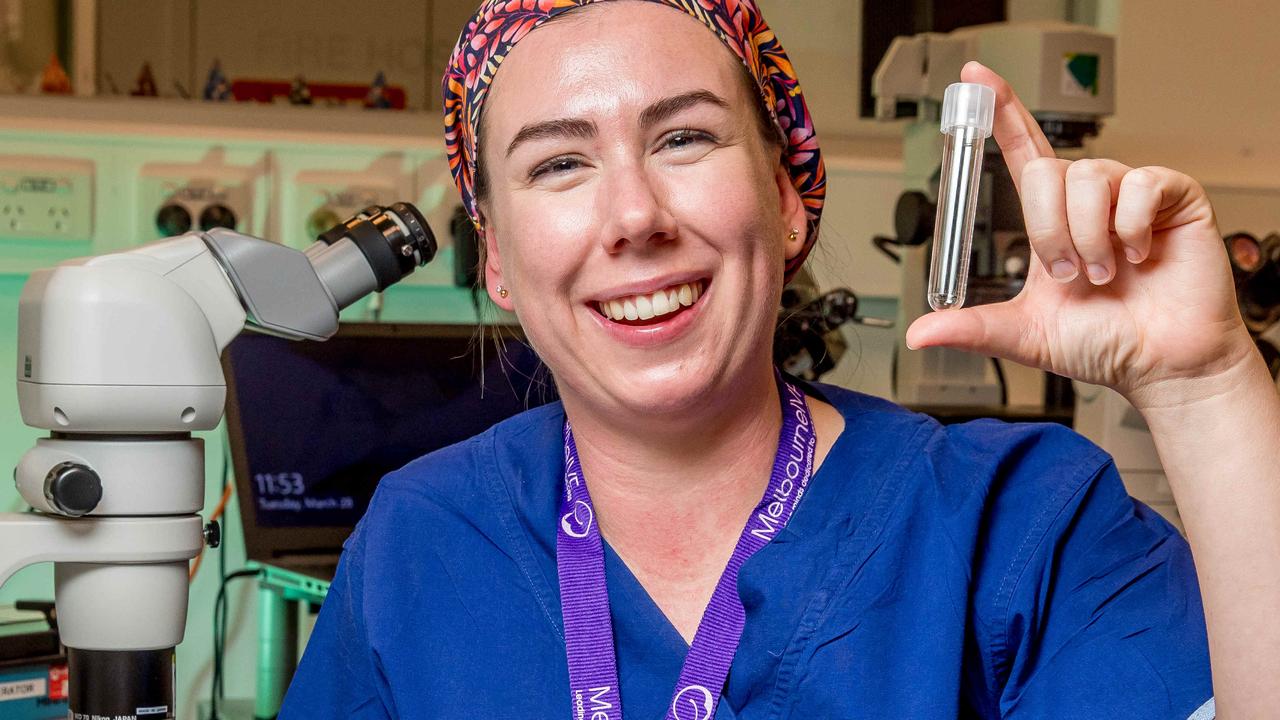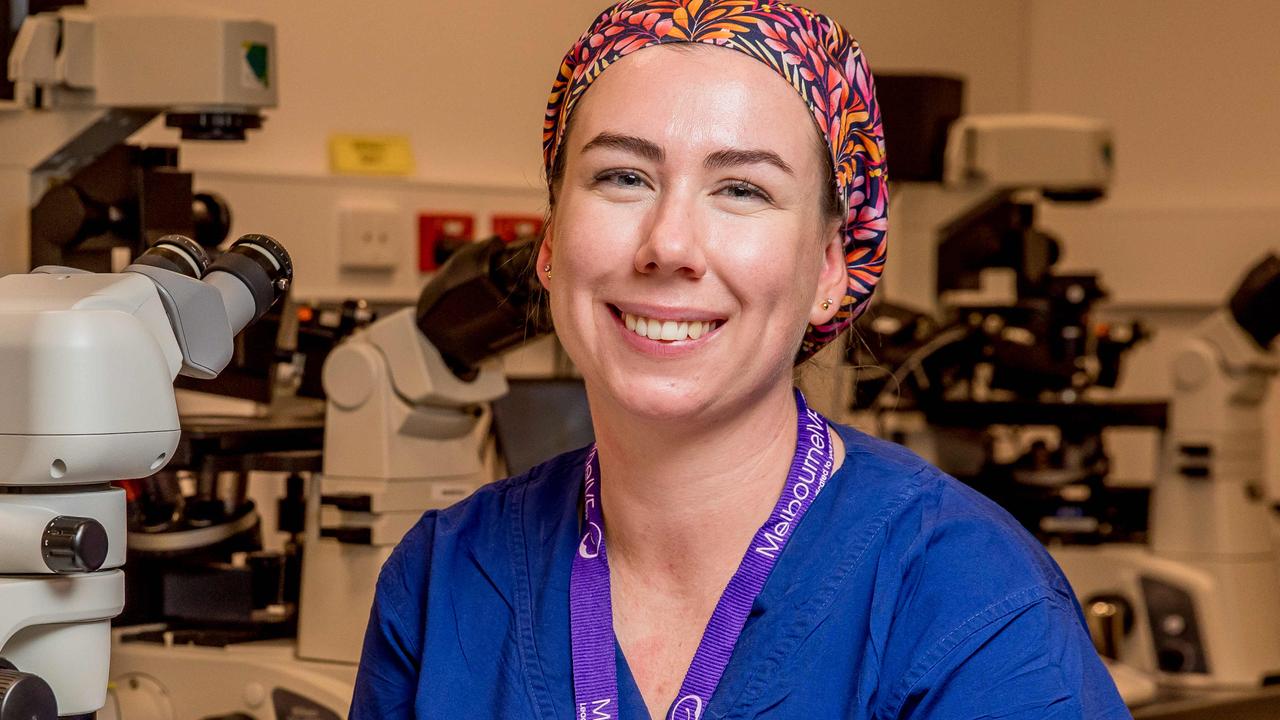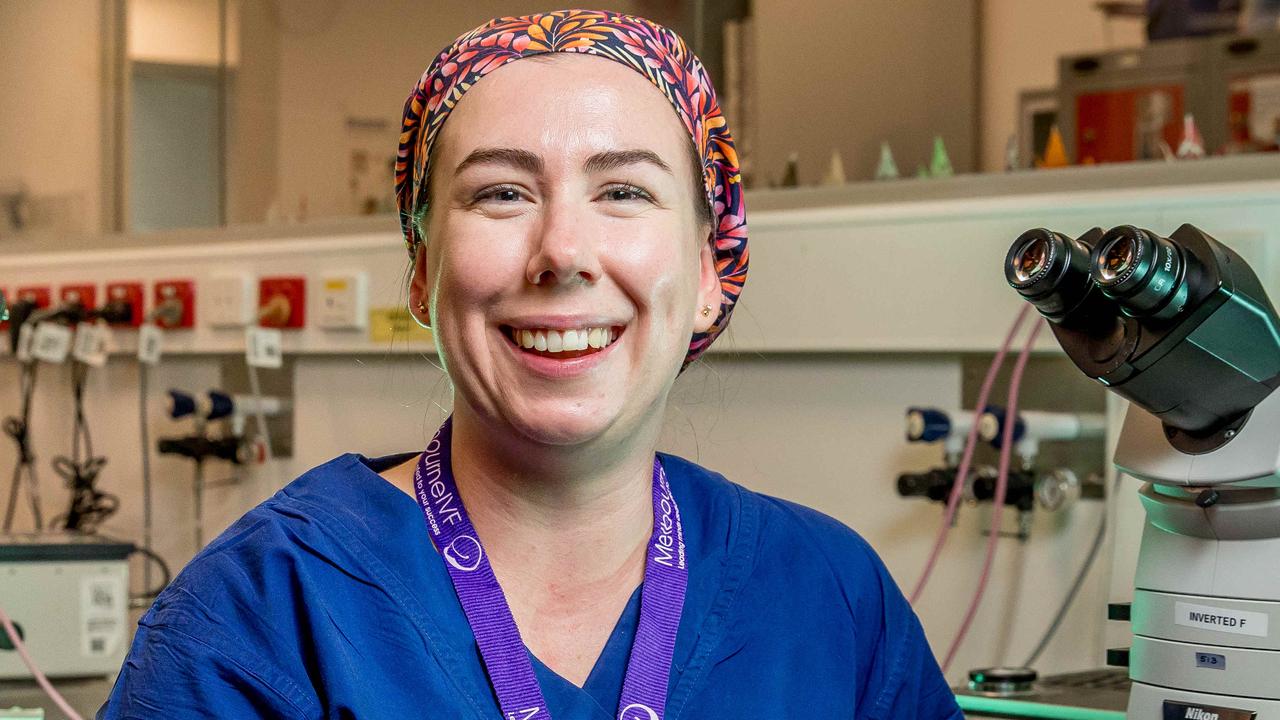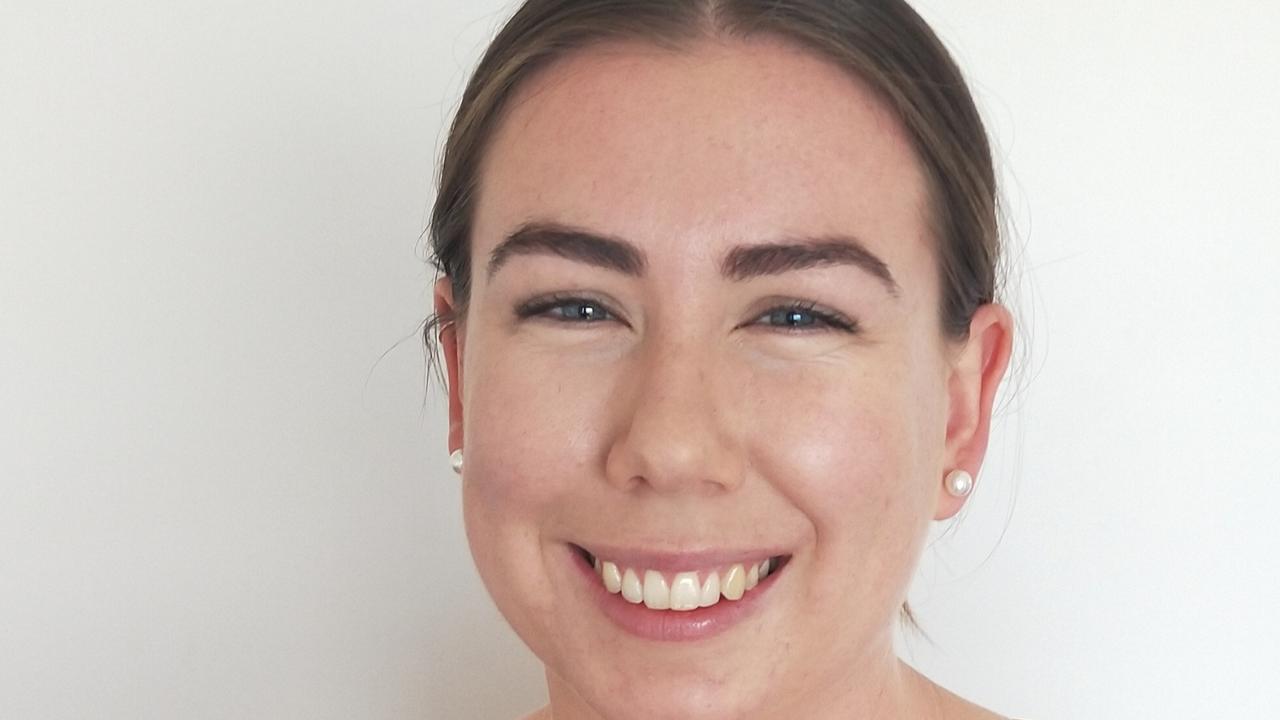Melbourne IVF scientist starts working in laboratory where she was conceived
A woman who was born via IVF has made a career move in Melbourne that is believed to be a world first.

IT has been described as the ultimate homecoming, and very likely a world first.
Melbourne IVF clinical research embryologist Emma Whatley has just started working in her dream role, and finds herself working in the very laboratory where she was conceived.
Not only that, but one of her new colleagues was working in the laboratory the day she was conceived. It is highly likely, says Emma, she saw her very start to life.
Overwhelming?
“Amazing,” she says.

Her parents Simon Whatley and Helen Davies had a long journey to fulfil their dream of having a child.
They eventually underwent a relatively new procedure back then called Intracytoplasmic Sperm Injection (ICSI). The result, 28 years ago, was their long-awaited baby. ICSI is a technique for male infertility that delivers a single sperm injected into each egg to assist fertilisation.
“For as long as I can remember I have known about how I was conceived,” Emma says. “My dad told me the story from as early I could understand.”

Emma also remembers the moment she decided she wanted to be an IVF scientist.
“I was sitting on the lounge room floor, I was about 12, and someone came on TV talking about it and that was the starting moment,” she says.
“While it did seem odd that a 12-year-old talked about wanting to work in reproduction I was always encouraged by my parents to follow my dreams.”
A straight ‘A’ student, Emma remained focused on her career path and although she went through phases of wanting to be a doctor or a surgeon, remained true to her original decision.
While her parents are no longer together, she says they are both incredibly proud.
In March, Emma started at the Melbourne IVF laboratory in East Melbourne.
“It actually made me very emotional getting to observe some of the procedures that involve patients and seeing their joy and excitement. It made me think of my own parents going through that,” Emma said.
“It was also very moving to see the microscope we use for ICSI procedures knowing that is how I was conceived.”
Her mentors are the scientific director of Melbourne IVF and a Distinguished Professor in the School of BioSciences at the University of Melbourne, David Gardner, and Alex Harvey, now a senior research fellow at Melbourne IVF.
“I heard him (Professor Gardner) give a lecture when I was a student of the University of Melbourne and knew I wanted to work with him,” Emma said.
Professor Gardner said Emma’s story is the ultimate home coming: “an IVF baby who has come back to the clinic to work as an embryologist,” he said.
“It’s an impressive example of what we’ve known for a long time, that IVF children are happy, healthy and intelligent.”

Professor Gardner says Emma’s research story is already impressive. She worked on complex research into the effects of the ketogenic diet on embryonic development during her PhD.
“We are delighted Emma’s contribution will continue to help infertile couples, and further advance and improve care through further innovation and research,” he said.
Emma says one of her interests as an IVF researcher will be not only looking at improving the outcomes for patients, but also with a focus on the health of the children conceived.
“Studies suggest there is no difference, we have seen that with the world-first research done here in Melbourne looking at NAPLAN results,” Emma says.
“But I also want to make sure the health of IVF-conceived children is something that remains in people’s mind so that it doesn’t ever get compromised.”
For now, she says she is happy to be “home” in the laboratory.
“It feels great to be here, I am very happy.”



